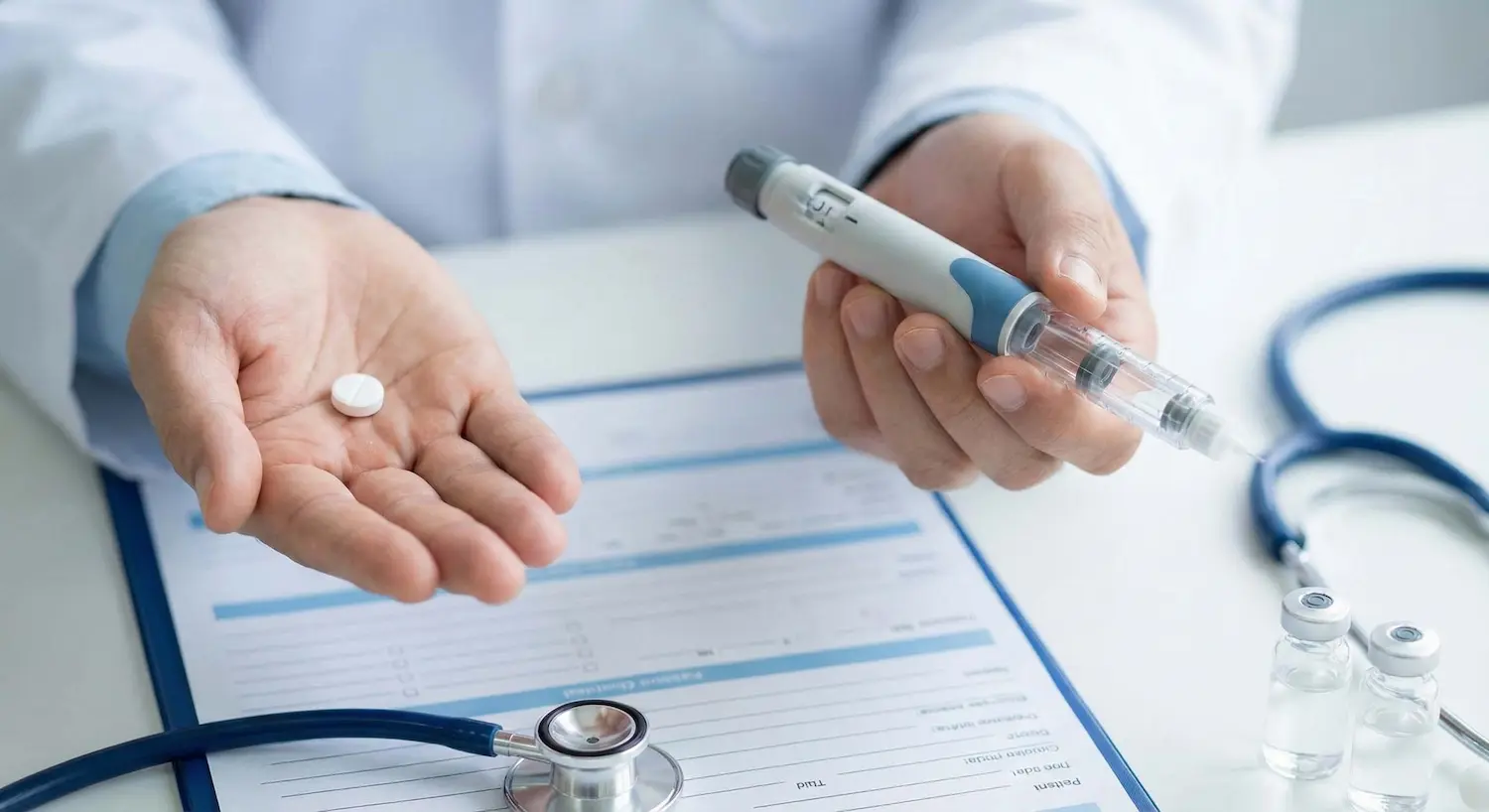
Screening tests are one of the most powerful tools we have in modern medicine. Not only can they find diseases when they’re most treatable, but they can also prevent them from developing in the first place. Screening tests play a key part in detecting cancers, heart disease and Type 2 Diabetes at their earliest stages when they are most treatable.
A screening test helps detect potential diseases or health disorders in people who do not have any symptoms. The goal is early detection and surveillance or lifestyle changes to lower the risk of disease or treat it before it gets worse. Healthcare experts don’t use screening tests to diagnose health problems. But screening helps check if a person may need more tests to figure out if they have a disease.
Early detection enhances the likelihood of favorable treatment results. When a disease is identified in its early stages, it tends to be more receptive to treatment. Moreover, early detection and timely intervention can halt the progression of the illness, mitigating the risk of complications and ultimately enhancing long-term health outcomes.
A disease diagnosed in its early stages increases the odds of successful treatment and survival. For example, the five-year survival rate for breast cancer diagnosed at stage 1 is 99%, compared to just 27% for late-stage diagnoses. Similarly, early detection and intervention for cardiovascular disease can drastically lower the risk of stroke and heart attack, the two leading causes of death worldwide.
Proactive intervention through screening often translates to significant cost savings in the long run. Treating advanced diseases is typically more expensive, even for those with health insurance. The cost of intensive surgeries, medications, and prolonged hospital stays add up. Early detection allows for less invasive and more cost-effective treatments, reducing the burden on patients and healthcare systems.

Early diagnosis and treatment often lead to less aggressive and more effective treatments, preserving a better quality of life for those with chronic diseases. This means less pain, fewer side effects, and a greater ability to maintain daily activities and routines.
When diseases are caught early, more treatment options are often available, and the chances of curing the condition are significantly higher. It also prevents the spread of disease to other organs and systems, making treatment more effective and reducing the risk of complications.
Screening tests are most beneficial when applied strategically – to individuals with risk factors, a family history of specific conditions, or those reaching certain age milestones. The effectiveness of screening tests lies in their ability to detect potential problems while minimizing ambiguous, confusing, or unclear results. While they are not always 100% accurate, it’s generally valuable to get these tests as per the recommendations of a medical care provider than not to have them at all. With that said, screening is only effective:
Here are some of the most common screening tests and the diseases they can help detect:
A cholesterol screening test is a simple blood test that checks the level of bad cholesterol in your blood. High cholesterol levels mean high risk for cardiovascular diseases. It's a crucial part of preventive health care as cholesterol can cause accumulation of plaque in your arteries and result in heart disease or stroke. CDC and The American Heart Association recommend the test every 4-6 years from age 20 for people with low risk of heart disease.
Pap smear is used to detect abnormal cell changes in the cervix. It can identify precancerous changes before they become cancerous, allowing for early intervention and treatment to prevent cancer development. According to IARC, there’s sufficient evidence that screening can reduce cervical cancer deaths by 80% or more among screened women. ACOG recommends a test every three years for women between 21 and 29 and every five years (when combined with the HPV test) for women between 30 and 65.
The PSA test screens for prostate cancer in men. It detects PSA levels (a protein produced by cancerous and non-cancerous tissues) in the blood. General guidelines recommend starting this test at age 55, but men may need the screening between ages 40 and 54 if they are high-risk.

FOBT is a screening test used to detect hidden (occult) blood in the stool. The presence of blood in the stool may indicate various gastrointestinal conditions, including colorectal cancer, polyps, or other digestive tract issues. A colonoscopy is to be done within 90-180 days of a positive FOBT.
Colonoscopy is a more comprehensive and direct test for examining the entire colon and rectum. It involves using a flexible tube with a light and camera (colonoscope) to visualize the lining of the colon. During a colonoscopy, a healthcare professional can identify and remove polyps (small growths on the colon lining that can potentially turn into cancer) and also take tissue samples (biopsies) for further analysis. Regular colorectal cancer screening is recommended for people age 45 and older.
Blood sugar tests measure blood glucose levels in the blood. It's a simple yet crucial test that helps diagnose and manage diabetes, prediabetes, and other conditions related to blood sugar levels. Early diagnosis of diabetes or prediabetes allows for lifestyle changes and treatment to prevent complications like heart disease, stroke, nerve damage, and vision problems. The American Diabetes Association recommends regular screening for anyone ages 35 or older.
A mammogram is an X-ray imaging that helps in breast cancer screening. It can detect small, suspicious changes in breast tissue before they can be felt as lumps. This allows for early intervention and treatment, leading to better prognoses. According to the American Cancer Society, women over the age of 40 should get mammograms every year.
Screen tests offer a proactive approach to preserving health and preventing the progression of diseases. The ability to detect potential problems early, coupled with timely intervention, can improve treatment outcomes and minimize the impact of the disease on your overall well-being.
Early detection is not just about catching diseases early; it's about maximizing your chances for successful treatment, improving your quality of life, and, ultimately, living a longer, healthier life. By prioritizing preventive healthcare and taking advantage of screening tests, you are investing in your future well-being.If you're looking for opportunities to participate in clinical trials and contribute to the advancement of medical science, we’ve got you covered. At Science 37, we offer a wide range of clinical trials across various health conditions, allowing you to play an active role in advancing scientific research while potentially benefiting your health.


